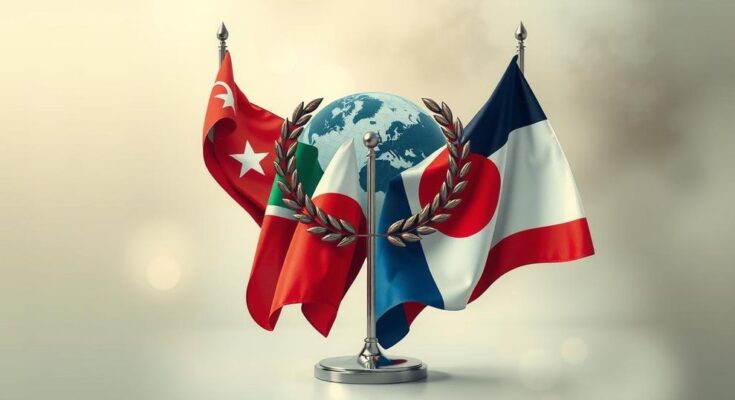Ayatollah Khamenei retweeted a statement criticizing Ukraine’s reliance on the U.S. following the Trump-Zelenskyy confrontation, highlighting that Western support for allied nations is illusory. Hardliners in Iran support his views, while some commentators urge for negotiations to enhance Iran’s leverage in international relations.
Iran’s Supreme Leader, Ayatollah Ali Khamenei, has shared a previous tweet from March 1, 2022, in light of a recent confrontation between U.S. President Donald Trump and Ukrainian President Volodymyr Zelenskyy. This retweet criticizes Ukraine’s dependence on the United States, emphasizing that support from Western powers is illusory for their allied nations. Khamenei stated, “The first lesson from the situation in Ukraine is that Western support for countries and governments that are their puppets is a mirage.”
As the global community reacted to Trump’s remarks chastising Zelenskyy for lacking gratitude, hardliners in Iran utilized this moment to reinforce Khamenei’s earlier assertion that negotiating with the Trump administration would be neither wise nor dignified. Abdollah Ganji, an Iranian journalist, highlighted the unthinkable prospect of an Iranian leader in Zelenskyy’s position.
Khamenei’s political advisor, Ali Shamkhani, echoed this sentiment by recalling a previous incident in 2019 when Khamenei dismissed a message from Trump via Japanese Prime Minister Shinzo Abe. Contrastingly, reformist commentator Fayyaz Zahed criticized Trump’s comments, labeling them as reminiscent of an imperialist era. Zahed remarked, “The real America is what we are witnessing.”
However, some commentators urged for engagement with the United States, concerned that Iran might miss opportunities for dialogue. Diako Hosseini, a political analyst, argued that the contentious exchange between Trump and Zelenskyy indicates the necessity for negotiations while the opportunity still exists, stating, “One should never enter talks under any other circumstances.”
The recent tweet from Ayatollah Khamenei serves as a critique of Western support for nations reliant on the U.S., particularly in light of the contentious exchange between Trump and Zelenskyy. While hardliners reinforce Iran’s previous stance against engaging with the Trump administration, some advocates call for dialogues, stressing the need for negotiations before losing leverage. This dynamic continues to shape Iran’s foreign policy as it navigates complex international relationships.
Original Source: www.theweek.in




